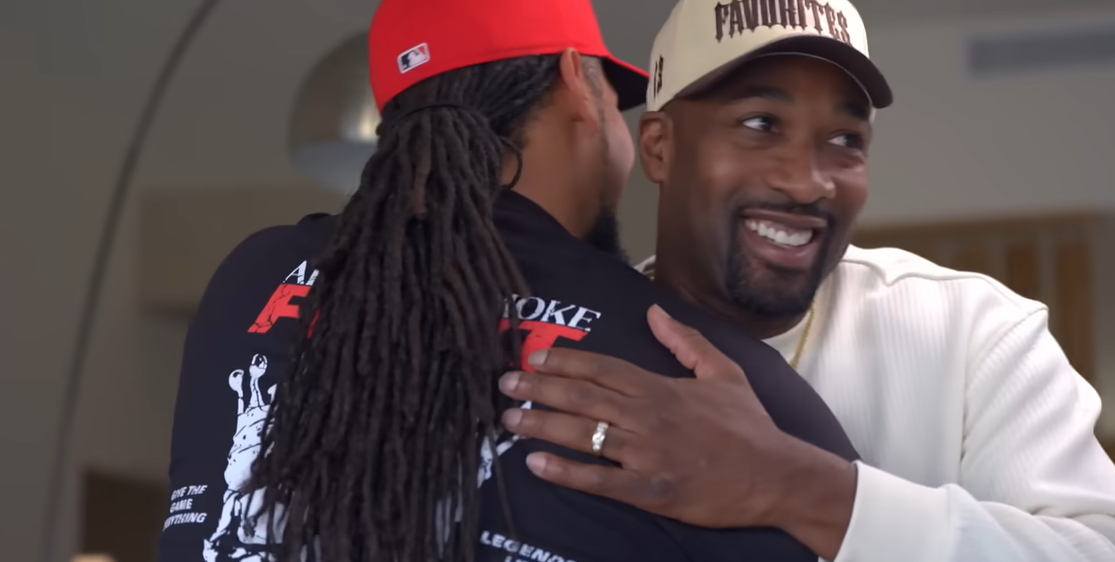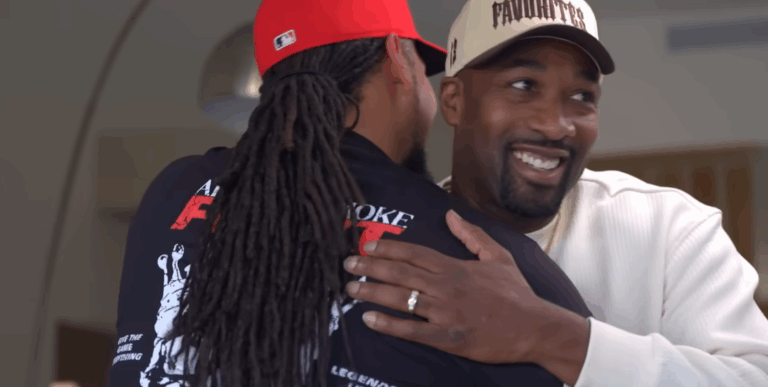The financial story of Gilbert Arenas is a remarkable combination of extraordinary profits, audacious spending, and a resolute attempt to remain relevant in a sports industry that is changing quickly. His remarkable $163 million in career earnings would put most athletes in permanent financial comfort. Arenas’ journey, however, has been much more complicated, influenced by both expensive errors and incredible opportunities.
Arenas, affectionately known as “Agent Zero,” earned his reputation by scoring goals without fear and performing heroics at the last second, converting skeptics into supporters with game-winning shots when the clock struck zero. He became one of the league’s most well-known players after seven years with the Washington Wizards, where he signed a lucrative six-year, $111 million contract in 2008. The six-year, $63.7 million contract that preceded it was also remarkably successful in securing his financial future at the time.
His Orlando Magic contract’s amnesty clause turned into an unanticipated windfall. Despite missing years of play, Arenas earned $22.3 million from the Magic in 2014, ranking among the top 30 highest-paid athletes in the world. Arenas received a huge payout thanks to this special payout structure, which also greatly lessened the team’s salary cap burden. This is an uncommon and especially advantageous arrangement in professional sports.

Gilbert Arenas Net Worth
Gilbert Arenas — Profile and Financial Overview
| Detail | Information |
|---|---|
| Full Name | Gilbert Jay Arenas Jr. |
| Date of Birth | January 6, 1982 |
| Nationality | American |
| Profession | Retired Professional Basketball Player, Media Personality |
| NBA Career Earnings | Approximately $163 million |
| Estimated Net Worth (2025) | $6–10 million |
| Notable Teams | Golden State Warriors, Washington Wizards, Orlando Magic, Memphis Grizzlies, Shanghai Sharks |
| Endorsements | Adidas (Adidas Gil Zero, TS Lightswitch) |
| Major Assets | Multiple luxury homes (Virginia, California) |
| Reference | Celebrity Net Worth |
But his on-court accuracy was not matched by his financial discipline. Arenas subsequently got into legal issues with financial advisors and spent extravagantly, famously spending $1 million on a single birthday celebration. He accused one of losing millions of dollars due to careless investments, exposing a weakness that many athletes experience when unexpected wealth collides with inadequate financial advice.
His financial situation was also influenced by personal obligations. After a high-profile breakup, he had to pay $20,000 a month in support to Laura Govan, with whom he had four children. At one point in 2016, Arenas said he was considering sending his kids to public schools because he could no longer afford the $96,000 a year tuition at the private school. At the time, he claimed to earn $170,000 a year from investments, a remarkably low amount compared to his NBA peak.
His real estate transactions speak for themselves. He lost $1.35 million when he sold a lavish $2.875 million mansion in Virginia. He purchased and sold a number of opulent residences in California, such as a Mediterranean-style estate in Encino and a Tuscan-style home with a saltwater pool and expansive views in Calabasas. While some sales generated small profits and others barely broke even, they all showed a very consistent trend of high-value real estate investment.
Arenas has used the media to reinvent himself in recent years. His podcast, “Gil’s Arena,” has developed into a forum for candid sports commentary and first-person accounts, which has significantly increased his appeal to younger fans who have never witnessed him play. This change demonstrates the tremendous adaptability of personal branding in supporting a career outside of professional sports.
When compared to other former NBA players, Arenas’ financial trajectory is remarkably similar to that of Allen Iverson or Antoine Walker: a quick rise in wealth followed by financial instability. Arenas, however, has escaped total collapse, in contrast to others. Due in large part to his guaranteed contracts and flexibility, he is still a multimillionaire, with an estimated net worth of $6–10 million in 2025.
Beyond the stat sheets, Arenas has left a lasting legacy. His story continues to provoke discussions about athlete wealth management, his jersey number became a cultural icon, and his game inspired a generation of Washington fans. His experiences could be a particularly creative case study for new players joining the NBA in the upcoming years as salaries rise.


